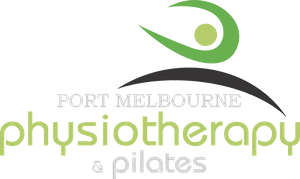How can we optimise health and wellbeing?
Prior to lockdown, I was fortunate enough to attend a presentation by Paul Taylor, a former British Royal Navy Aircrew Officer turned Neuroscientist, Exercise Physiologist and Nutritionist. Paul is also currently completing a PhD in Applied Psychology. An engaging and enthusiastic speaker, Paul presented the latest cutting-edge science when it comes to wellbeing, resilience, and peak body and brain performance. Below, I share with you some of Paul’s key points when it comes to maximising your wellbeing potential.
Exercise:
Exercise is the key to optimise health and wellbeing, both physically and mentally. Unequivocally, it can be said that for your brain to be functioning optimally you need to be engaging in regular physical activity (the more vigorous the better!) There is a mountain of evidence out there to support this.
In particular, exercise has a huge impact on executive cognitive function of the brain. That involves things such as complex decision making, planning and judgement. Exercise is also important for driving neuroplasticity in the brain. Neuroplasticity is defined as the ability of the nervous system to change its activity in response to intrinsic or extrinsic stimuli by reorganising its structure, functions, or connections.
The long list of positive effects:
This has proven to have therapeutic benefit such as decreasing psychiatric illnesses, supporting brain injury recovery, and resisting neurodegenerative diseases such as Alzheimer’s disease. Exercise also improves our mental health through the release of endorphins and other feel-good chemicals such as endocannabinoids, dopamine, serotonin and noradrenaline. These are all stimulated by exercise.
Last but not least, exercise is also a very powerful driver of your gene expression. Every bout of physical exercise causes marked changes in gene expression throughout the body. This causes a cascade of metabolic changes in our cells. Simply put, when we exercise, our cells work better, both in the body and brain.
Cold showers:
A 2016 randomised controlled trial in the Netherlands studied the effects of cold showering on health and work. The results showed that the study participants who had a regular cold shower (30/60/90 seconds) at end of their normal shower, had a 29% reduction in sickness and absenteeism. Combined with regular physical activity, there was a 54% reduction in sickness and absenteeism compared to people who don’t do either. There was no significant difference between groups in regards to the duration of the cold shower.
The evidence:
The science underpinning this is when you have a cold shower, or expose yourself to any form of cold water, norepinephrine is released in your brain. Norepinephrine is both a stress chemical and a feel-good chemical. It has been shown to up-regulate your immune system. It is the same stress response chemical that gets released when you exercise. This was reflected in the intervention groups who commonly reported an increase in perceived energy levels following a hot-to-cold shower. In case you are wondering – yes, I have tried this myself!
- Digital Detox:
When we interact with our screens and devices within 30 minutes of going to bed, melatonin (your sleep hormone) drops by almost 30%. This mean you are less likely to get to sleep and more likely to wake up during the night. When our sleep is negatively impacted, we are more likely to be stressed the next day. Lack of good quality or sufficient sleep also affects 2 particular hormones; Leptin and Grehlin.
Grehlin, your hunger hormone, is increased so you eat more food. As your cortisol is also increased through stress, you crave sugar, salty and fatty foods. Leptin, which is your “off” switch when it comes to food is reduced, so you eat more. Interestingly, Leptin also controls voluntary physical activity so you are also less likely to move. Therefore, this impacts your ability to control stress and the cycle just perpetuates. Aim to switch off all screens and devices within 30 minutes before bed (minimum) for a more restful night.

Gratitude
Gratitude, or appreciation for the good things that happen in life, is an essential part of building happiness. Research has shown that there are numerous benefits in people who regularly practiced gratitude. An easy way to optimise health, some of these benefits include:
- An increase in positive emotions and mood.
- Enhanced physical and mental wellbeing.
- More optimism and hope (important key factors for long-term resilience).
- More empathy and forgiveness.
- Decreased risk of depression and anxiety
- Reduced materialistic thinking and envy.
There are many different ways to practice gratitude. Not only is it a quick, simple and free practice, but it can dramatically increase your wellbeing. One way is to write down or discuss with your partner 3 things that you were grateful for, or things that went well for you that day.
Brain Booster breaks:
1. Movement snacks
In our current climate of lockdowns and working from home, most of us are sitting down longer than we would like. Prolonged sitting is associated with a range of health problems. These include chronic musculoskeletal pain, cardiovascular disease, diabetes, poor mental health, some forms of cancer and obesity.
‘Movement snacks’ give your body a window of opportunity to move. Movement allows the release those feel-good chemicals and burns up those stress chemicals during the day. Simply, 30 seconds of vigorous activity such as sprinting on the spot, skipping, squat jumps, fast squats- whatever gets your heart rate going! Do this as often as you can throughout the day. Undoubtedly, this will help combat the negative side effects of our sedentary lifestyle and improve your health and wellbeing.
2. Box breathing
US Special Forces use this particular breathing technique when on patrol to control arousal and put their brains in an optimal state. It heightens performance and concentration while also being a powerful stress-reliever.
Box breathing involves inhaling for 4 seconds, holding breath for 4 seconds, exhaling for 4 seconds and holding breath for 4 seconds. Repeat this cycle a minimum 4 times or as long as time allows. This technique is thought to signal a vagus nerve response to stimulate your parasympathetic nervous system (think calm and relaxing). Box breathing reduces your heart rate, blood pressure and helps bring your brain out of a stressed state. Combine your ‘movement snacks’ with some cycles of box breathing and feel the difference.
You can find Paul Taylor through his website: http://www.mindbodybrain.com.au
Paul also has his own Podcast ‘The MindBodyBrain Project’ on Apple Podcasts.

~ Diana Emmerson
Physiotherapist

